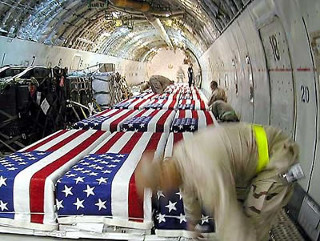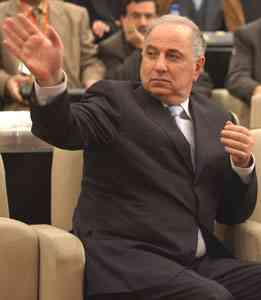MANILA, Philippines—In describing his new boss’ seeming indifference to public and media perception, Press Secretary Crispulo “Jun” Icban turns to the dictator Ferdinand Marcos for comparison.
Icban yesterday sought to explain President Macapagal-Arroyo’s refusal to engage media in unfiltered interviews, saying she “is what she is so we’ll have to leave it as she is now and let history judge her.”
He acknowledged that Ms Arroyo was unpopular particularly in Metro Manila, but said the matter should be seen in the context of the capital being traditionally the turf of the political opposition.
“In the beginning, Metro Manilans were also angry with him (Marcos),” he said. “But his image improved because he got things done.”
Icban, whose 56 years in journalism spanned eight presidents, said Marcos’ image improved through the years once the public began comparing him with his successors and realized he was able to build many infrastructure projects.
Asked if he expected the same thing to happen in the case of Ms Arroyo, he said: “I think so.”
“Like Marcos and everybody else, she will be judged by what she achieved within her time,” he said.
Marcos was ousted in the Edsa People Power Revolution in 1986. He fled with his family to Hawaii where he died on Sept. 28, 1989.
Arroyo no communicator
Icban said Ms Arroyo’s nine-year tenure in office should be gauged more for its achievements than for her ability to communicate.
“It only helps a politician to be good at communication,” he said. “But in the end, it would be the achievement and perhaps, she is giving more importance on achievements than communication. So, we, as (her) communicators, will have to live with that.”
In her last Christmas party with the Malacañang Press Corps in December, Ms Arroyo apologized for being a “difficult subject to cover” and promised to be more open to journalists.
Charm offensive
Late last month, her image-builders came up with a new tack to promote her so-called accomplishments and endear her to the media in the process—a charm offensive involving visits to private media outlets on top of publishing advertisements trumpeting her administration’s achievements.
But some things apparently didn’t change. So far in her media tours, she has limited questions and refused to tackle political and controversial issues.
Set to walk out
In a Bacolod sortie on Wednesday, she threatened to walk out over a question about the poor ratings of the administration’s standard-bearer.
Icban, who had joined her on that trip, explained: “She decided she just wanted to talk about the cyber corridor and she did not want to deviate from that, so that was the plan.”
Asked if it would be better if Ms Arroyo were to answer more questions later on, he said:
“She has her own way and she became President because of that. Maybe that is the reason she became President … She is very strong-willed and maybe part of her success in getting all these people to come and join the President is her strong will. Some people want somebody like that.”
 Though some media outlets incorrectly reported that the number of troops killed were the toll for only the Afghan War, OEF actually encompasses not only the Afghan War, but three smaller US military operations, in the Philippines, Horn of Africa, and Trans Sahara.
Though some media outlets incorrectly reported that the number of troops killed were the toll for only the Afghan War, OEF actually encompasses not only the Afghan War, but three smaller US military operations, in the Philippines, Horn of Africa, and Trans Sahara.
 ended Monday by adopting the "Nagasaki Appeal," which also asked world leaders, including U.S. President
ended Monday by adopting the "Nagasaki Appeal," which also asked world leaders, including U.S. President  The article, entitled “
The article, entitled “ And while British officials insisted, and the AP was quick to point out,
And while British officials insisted, and the AP was quick to point out, Exact details of the attacks on the Shi’ite religious ceremony were still emerging, but today’s attacks involved a motorcycle suicide bomber.
Exact details of the attacks on the Shi’ite religious ceremony were still emerging, but today’s attacks involved a motorcycle suicide bomber. 


